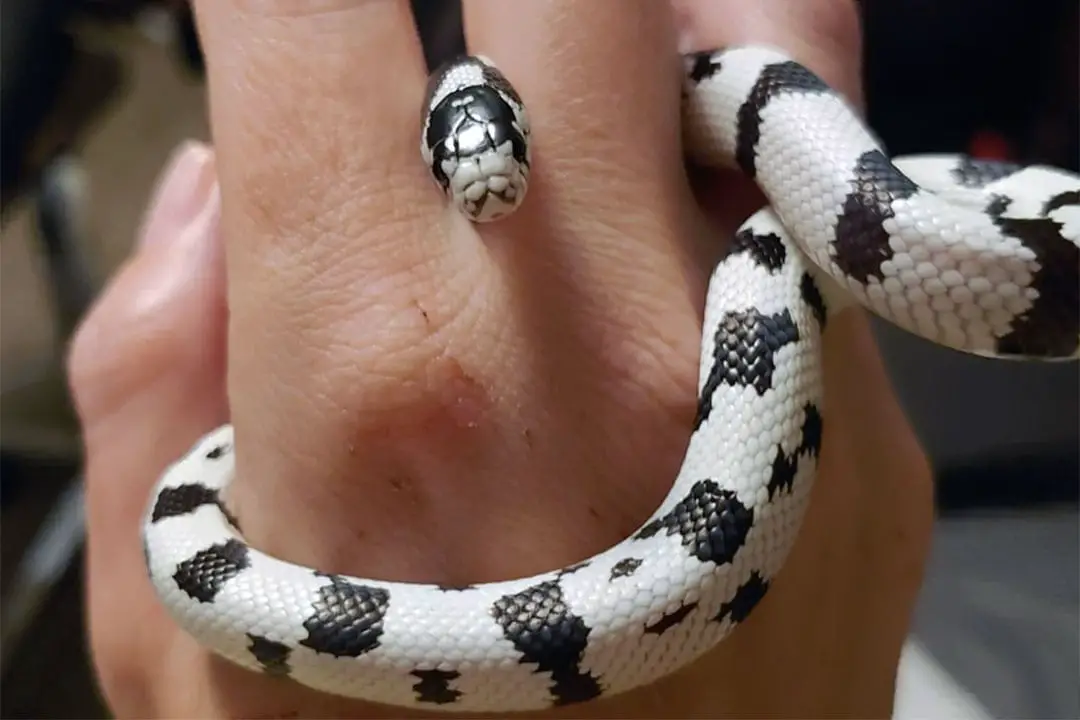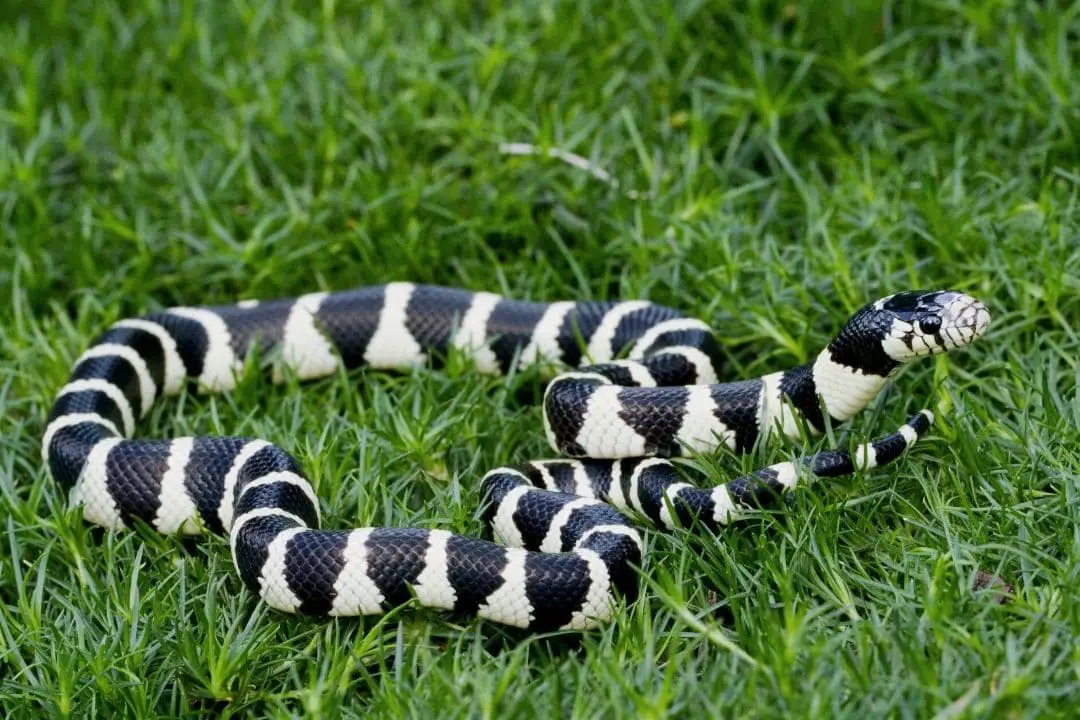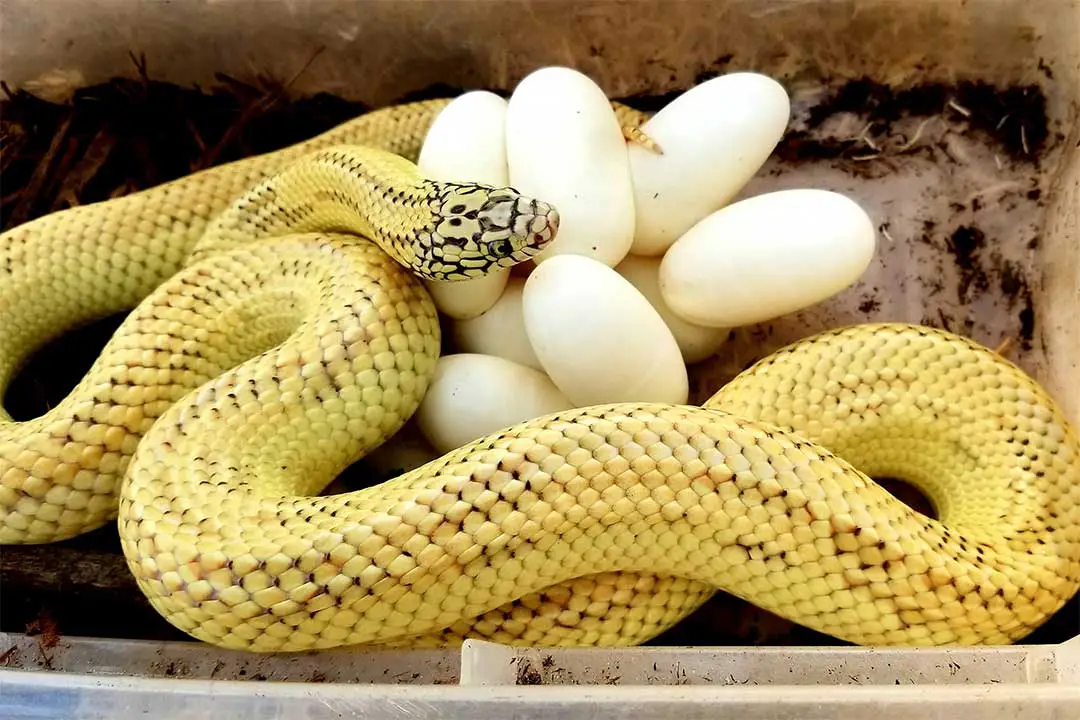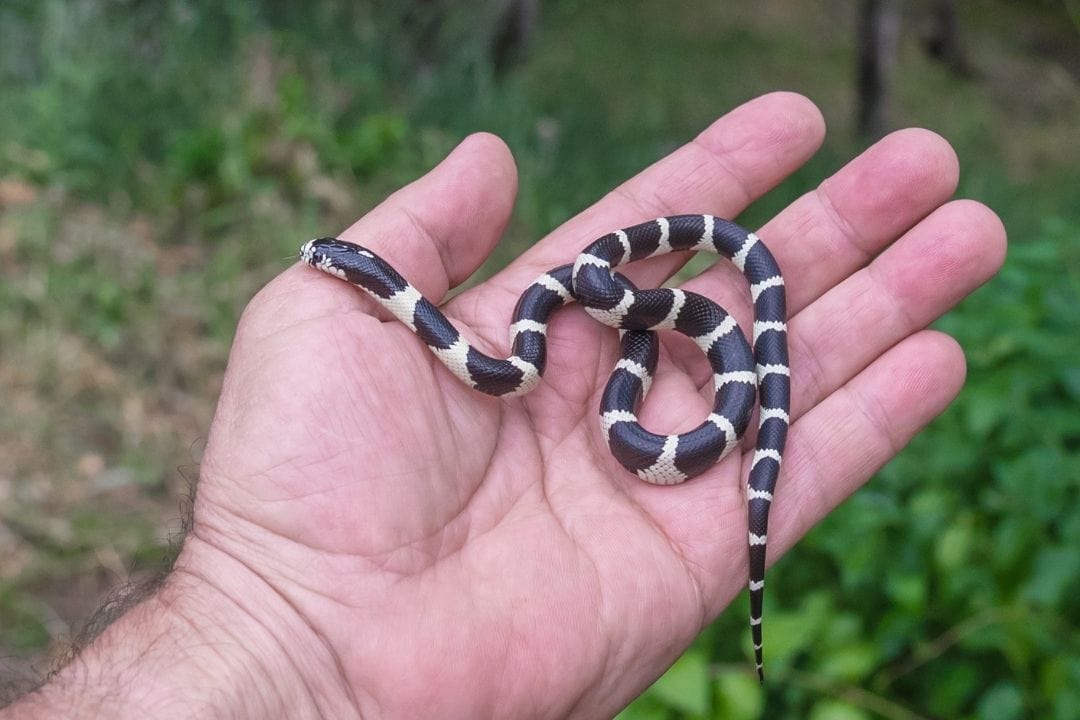One of the biggest factors you are likely to consider when deciding on a pet is temperament. Some snakes are easier to handle than others. Some snakes are aggressive, so you may be wondering if kingsnakes are aggressive?
No, kingsnakes are not aggressive. They may bite if they feel frightened, but they will not attack you for no reason.
Typical Wild Kingsnake Behavior
Kingsnakes are not very aggressive towards humans. If you run into a kingsnake in the wild, it would choose to flee. A kingsnake only fights back if it feels cornered.
They will typically warn you before they bite. A cornered kingsnake will typically exhibit defensive behaviors such as hissing, puffing up, and rattling its tail before it will bite. Kingsnakes can be aggressive towards other snakes.
The “king” part of the name refers to the fact that all kingsnakes eat other species of snakes. This even includes venomous snakes like rattlesnakes. Because of this, kingsnakes should never be housed together.
Everything you need to know about caring for King Snakes in captivity:
Read our California King Snake Care Sheet (Complete Guide)
Kingsnake in Captivity
Captive-bred kingsnakes are typically calm animals. There are a number of species and subspecies of kingsnake, so the exact temperament of your pet will differ slightly.
Most owners claim that the California kingsnake Lampropeltis californiae is the calmest of the common kingsnakes in captivity. So long as you handle them from a young age, they typically are calm as adults. Many individuals even seem to enjoy a chance to explore outside of the enclosure. This does depend on the individual snake. Some individual animals will never calm down no matter how often you handle them.
Another common kingsnake is the Mexican black kingsnake.
This species can be a bit more likely to bite than a California kingsnake. This is because of a high prey drive rather than aggression.
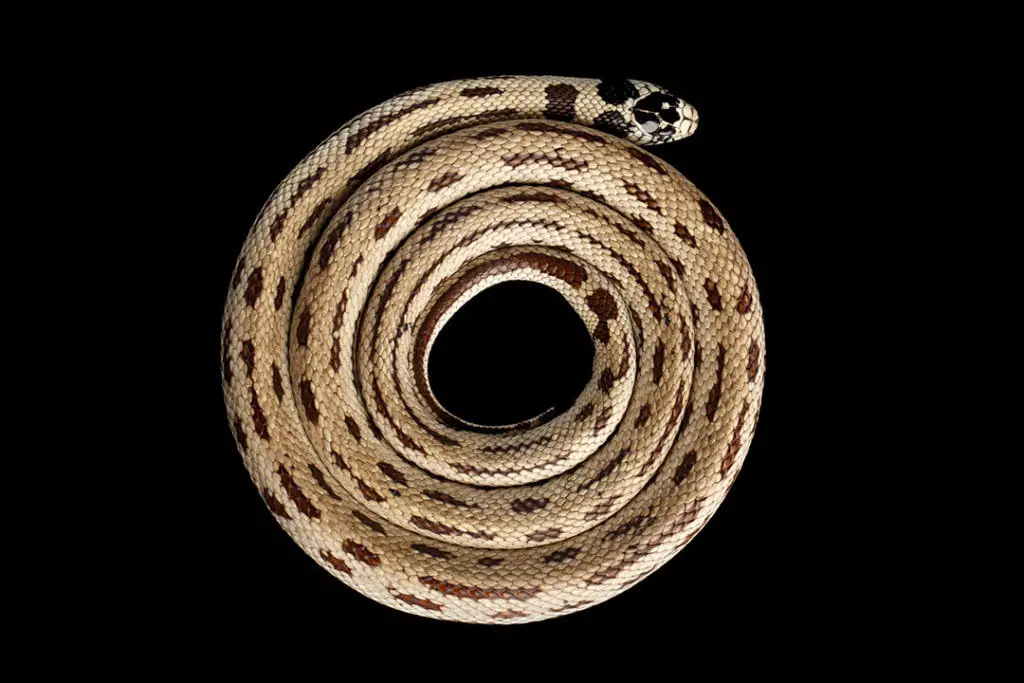
These snakes benefit from training so they know when to expect food. This can be accomplished by using a snake hook or paper towel tube to gently stroke the snake before a handling session. So long as you are consistent and never smell like food during a handling session, this teaches your snake not to mistake your hand for food.
In general, kingsnakes are calm snakes that make for good pets. As adults, the calm temperament makes them a nice choice for an older child. Hatchling and juvenile kingsnakes are a bit different.
Like all young colubrids, they tend to be flighty and defensive. They are more likely to bite you simply because they are afraid. Young kingsnakes are a common prey item for many species, so this behavior keeps them alive in their natural habitats. If your young kingsnake bites you, it is most likely a defensive bite rather than aggression.
How to Handle a King snake Safely
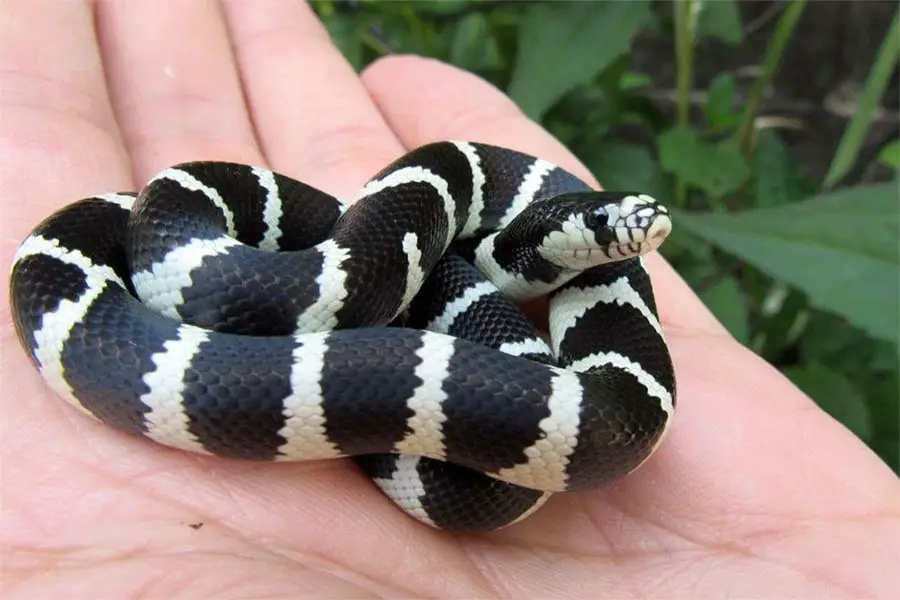
Kingsnakes aren’t venomous, so a bite from one isn’t dangerous. They also aren’t very large, so it is comparable to a cat scratch or mosquito bite as far as pain level.
A bite isn’t dangerous to you, but if you flinch away or drop the snake it could be injured. The best way to avoid being bitten is to watch your snake’s behavior.
If it is showing signs of fear or trying to escape, you shouldn’t force contact. Let your snake calm down before trying to handle it again. You should also never try to pick up the snake from above.
This mimics a predator so you are more likely to suffer from a defensive bite. Always slide your hand in from the side and gently lift the snake while supporting as much of the body as you can.
Don’t squeeze the snake or grab its head. Let the snake explore and once it is calm you can return it to the enclosure. Always keep handling sessions positive to let your snake know that it is safe with you.
Keep handling sessions under 10 minutes for a young snake and under 30 minutes for an adult. Never handle a snake until it has digested its meal. Picking up a snake that is shedding is also a bad idea. A snake that can’t see will be more likely to bite to defend itself.
Why is My King snake Aggressive
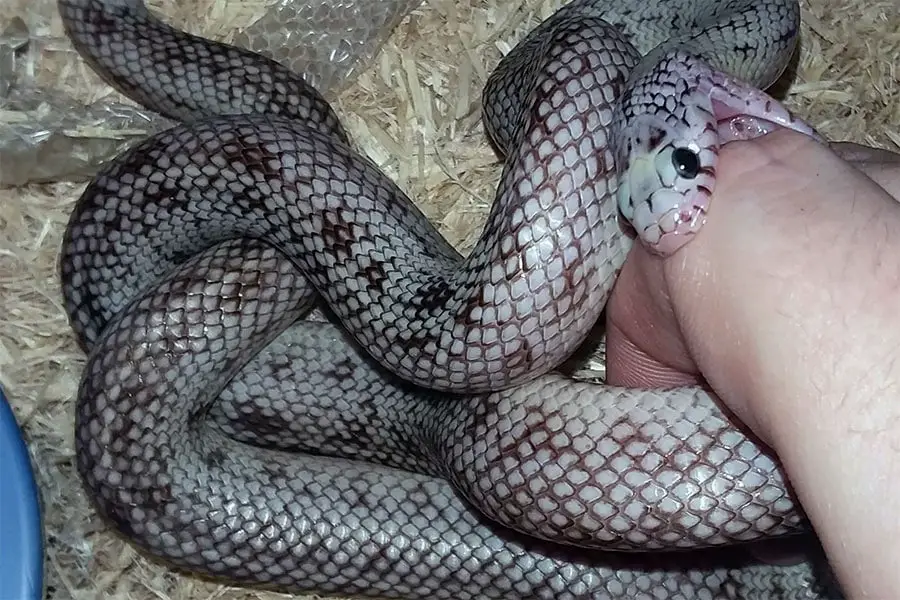
If your kingsnake is regularly trying to bite you, there can be a few reasons. The biggest reason is that your hands may smell like food. Both rodent smells and the scent of other snakes could convince your snake that your hand is food.
If you aren’t seeing any warning signs before a bite, this is the most likely cause. Wash your hands thoroughly before handling your snake. If your snake is showing signs of fear like attempting to hide or rattling its tail, it is scared.
Let your snake calm down before you try to handle it again. Always approach it from the side about midway down the body and make sure it is awake before you try to touch it. A snake that is awake will be moving or you will see its tongue flicking.
A snake that has just eaten or is shedding will feel vulnerable. Once you notice your snake’s eyes clouding up, you shouldn’t try to handle it until it finishes shedding. You also shouldn’t handle it until the lump from feeding goes down. Avoid handling your snake until at least 2 days have passed.
Another reason for apparent aggression could be illness. If your snake has a sudden change in behavior, you need to take it to a reptile vet for a check-up.
However, if your snake is young or you recently got it, you just need to handle it regularly to get it used to you. Any big changes to your snake’s habitat or conditions can also make it more nervous. If you have moved or changed up the enclosure, give your snake time to adjust.
Make sure that your snake has multiple hides in the enclosure and that the temperature and humidity are at good levels.
Summary
Once you understand why a kingsnake is biting, the behavior tends to be easy to handle. Most kingsnakes are calm and easy to handle as adults. Some individuals may be more likely to bite even as adults. This just depends on the individual. If you have any experience with a bitey kingsnake or have a question, leave a comment down below.
